
Audio By Carbonatix
The Crops Research Institute of the Council for Scientific and Industrial Research (CSIR-CRI) has trained selected youth in the Ashanti Region in the production of ready-to-eat tomato products (tomato ketchup) other than the usual tomato paste.
The move by the research institute is meant to address the perennial problem of postharvest losses in tomatoes.
Ghanaian farmers and marketers experience postharvest losses of up to 50 percent in tomatoes from the farm gate through the marketing cycles till it gets to the final consumer, according to available research.
The nation therefore tries to satisfy consumer demands by importing both fresh and processed tomato products valued at over US$ 100 million annually.
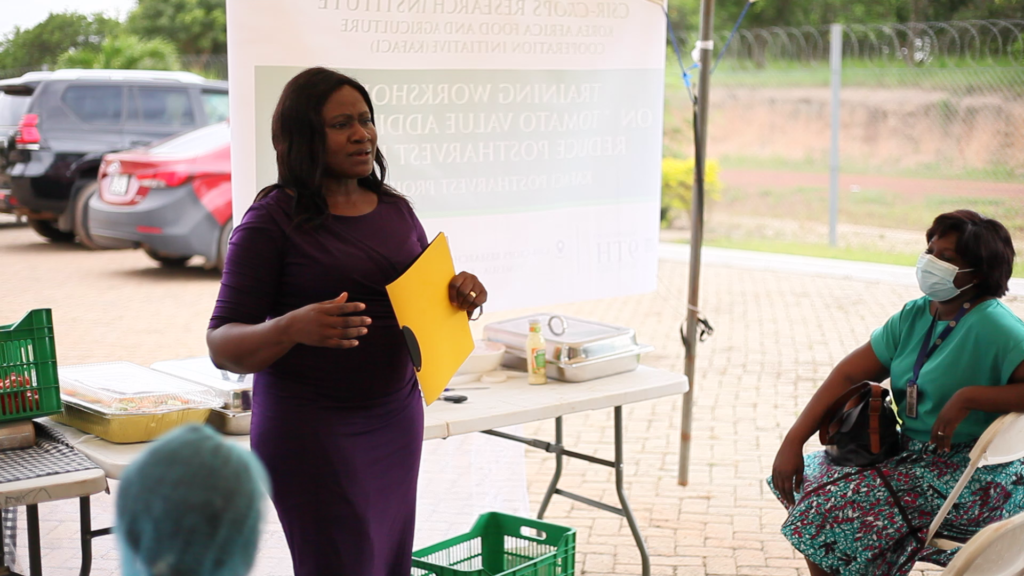
Led by Dr Evelyn Adu-Kwarteng, CSIR-CRI is therefore building the capacity of micro processing industries to locally produce tomato ketchup and jam to address the problem.
“…the aim of such trainings is to build capacities in our young people such that they can take up any excess harvested tomatoes and turn them into these value-added products because a lot of the tomatoes that we import are in the form of processed tomatoes and not only the fresh.”
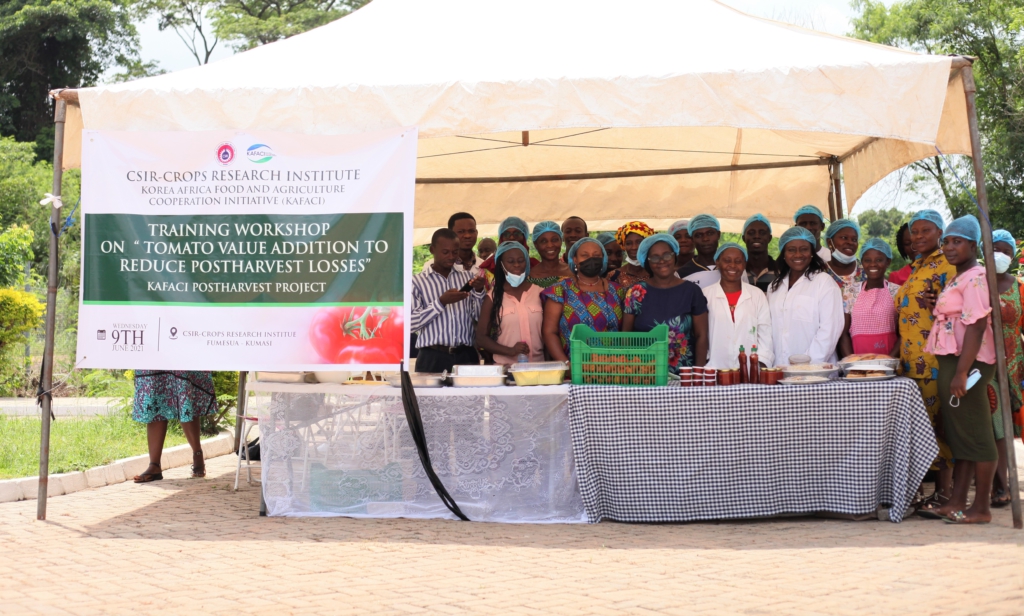
The Training Workshop
Dubbed, “Tomato Value Addition to Reduce Postharvest Losses”, eighteen persons with majority being women, drawn from various women’s group across the Ashanti Region were beneficiaries.
Other beneficiaries include cooking staff from senior high schools, Women in Agriculture and Development (a wing of Ministry of Food and Agriculture), representatives from MoFA Extension Office at Agogo (a major tomato growing area which was part of the project) and some senior high school graduates who are engaged in tomato production.
It is the second part of the Korea Africa Food and Agriculture Cooperation Initiative (KAFACI) Postharvest Project. The first one early this year was a capacity building in tomato jam production.
The Korean Government through KAFACI is providing the financial support for the research and development efforts aimed to make Ghana’s tomato sector more competitive.

Project Lead, Dr Adu-Kwarteng with the Horticulture Division of the CSIR-CRI, explained the other objective is to encourage cottage level industries.
“…the training is about production of tomato ketchup on a micro-scale, where people who are less resourced could go into processing of tomatoes into ready-to-use end products with added value.”
The beneficiaries were taught how to prepare tomato ketchup with locally available ingredients, the only exotic material was vinegar (cheap and readily available).
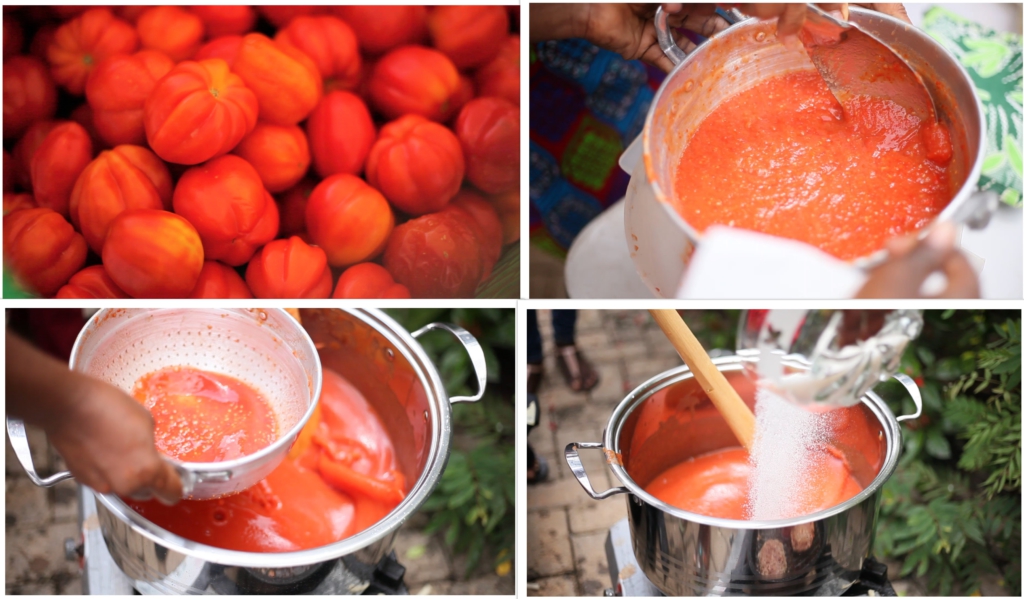
Fresh tomatoes are the primary ingredient. Onions, ginger, salt and other local spices are added. Sugar is used as a thickening agent.
Dr Adu-Kwarteng revealed they added chili pepper because, “from the little studies, people love that compared with the imported one that is without the chili pepper”.
It is however observed that some interested persons in such micro-processing ventures shy away from FDA regulations because of high cost and capital investment involved.
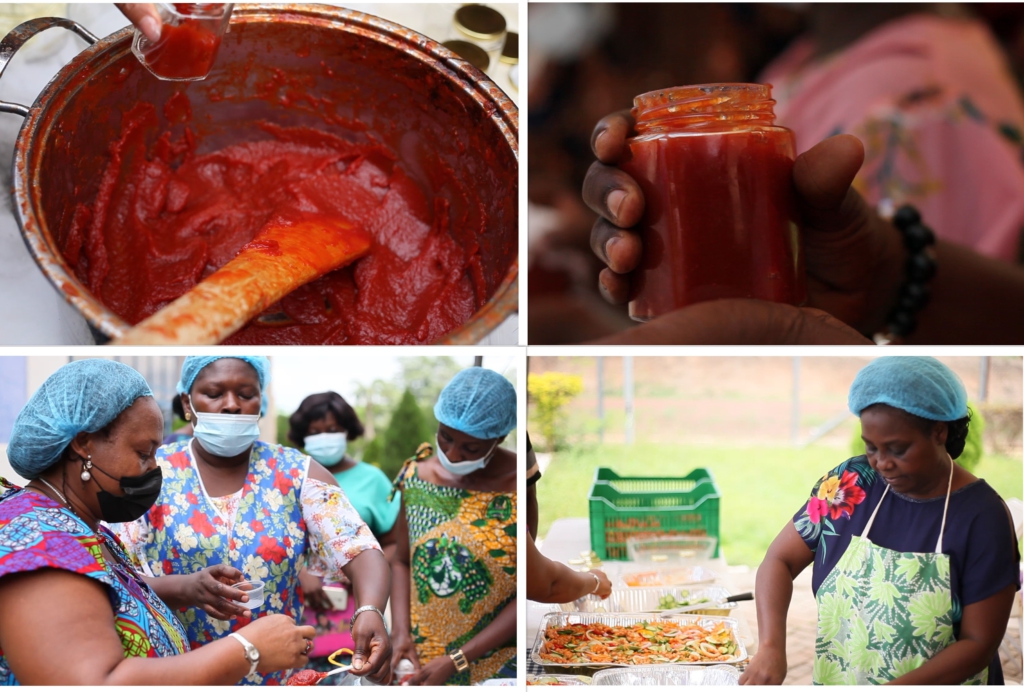
As part of the training, Regulatory Officer at FDA Ashanti, Gyiele Linda, resourced the beneficiaries with the right information on how to acquire the progressive licenses that has been instituted by the FDA.
“…they have been reassured that with basically nothing they can start and get the right licensed from the FDA”.
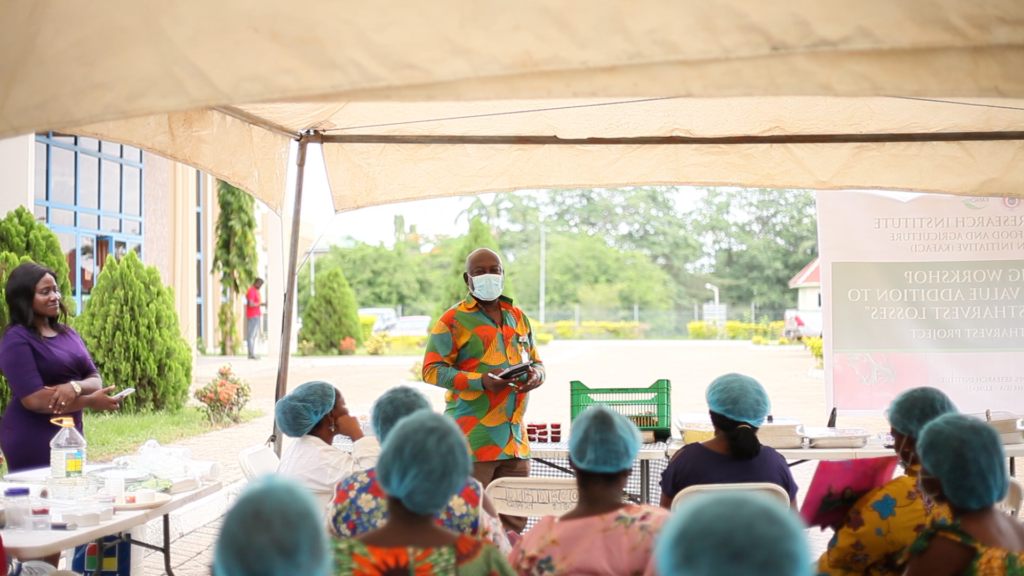
Director of Crop Research Institute, Professor Moses Brandford Mochiah, explained that such initiatives are critical to create jobs in addition to addressing the postharvest losses.
“…our records or data shows that we lose about 20 to 30 percent of the produce due to postharvest handling. So, if we can turn our own tomatoes into value added tomatoes, we will be killing two birds with one stone, that is creating jobs and cutting down the postharvest losses.”
He added that the institute has a division set aside to train people to make maximum use of what we is produced on the field without them going to waste.
Latest Stories
-
Ghana is rising again – Mahama declares
4 hours -
Firefighters subdue blaze at Accra’s Tudu, officials warn of busy fire season ahead
5 hours -
New Year’s Luv FM Family Party in the park ends in grand style at Rattray park
5 hours -
Mahama targets digital schools, universal healthcare, and food self-sufficiency in 2026
5 hours -
Ghana’s global image boosted by our world-acclaimed reset agenda – Mahama
5 hours -
Full text: Mahama’s New Year message to the nation
5 hours -
The foundation is laid; now we accelerate and expand in 2026 – Mahama
6 hours -
There is no NPP, CPP nor NDC Ghana, only one Ghana – Mahama
6 hours -
Eduwatch praises education financing gains but warns delays, teacher gaps could derail reforms
6 hours -
Kusaal Wikimedians take local language online in 14-day digital campaign
7 hours -
Stop interfering in each other’s roles – Bole-Bamboi MP appeals to traditional rulers for peace
7 hours -
Playback: President Mahama addresses the nation in New Year message
8 hours -
Industrial and Commercial Workers’ Union call for strong work ethics, economic participation in 2026 new year message
9 hours -
Crossover Joy: Churches in Ghana welcome 2026 with fire and faith
10 hours -
Traffic chaos on Accra–Kumasi Highway leaves hundreds stranded as diversions gridlock
10 hours

